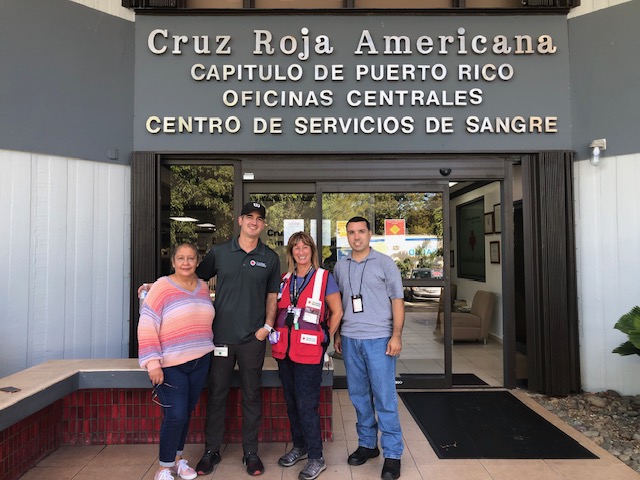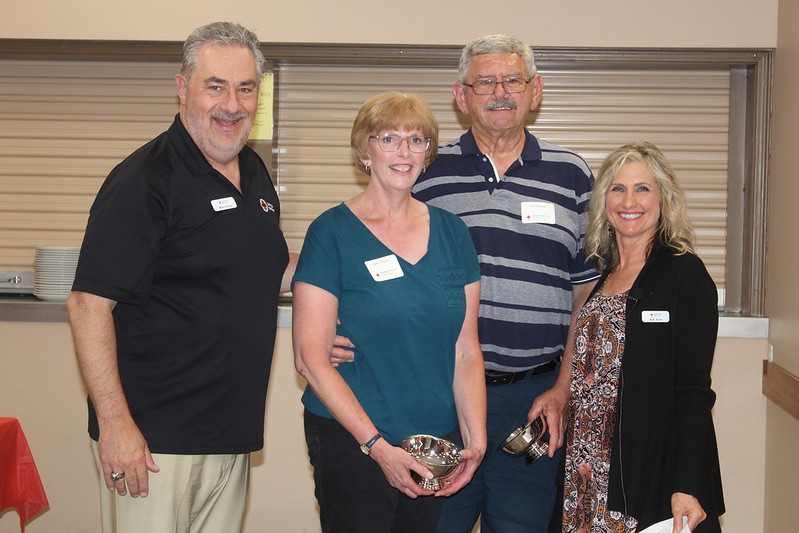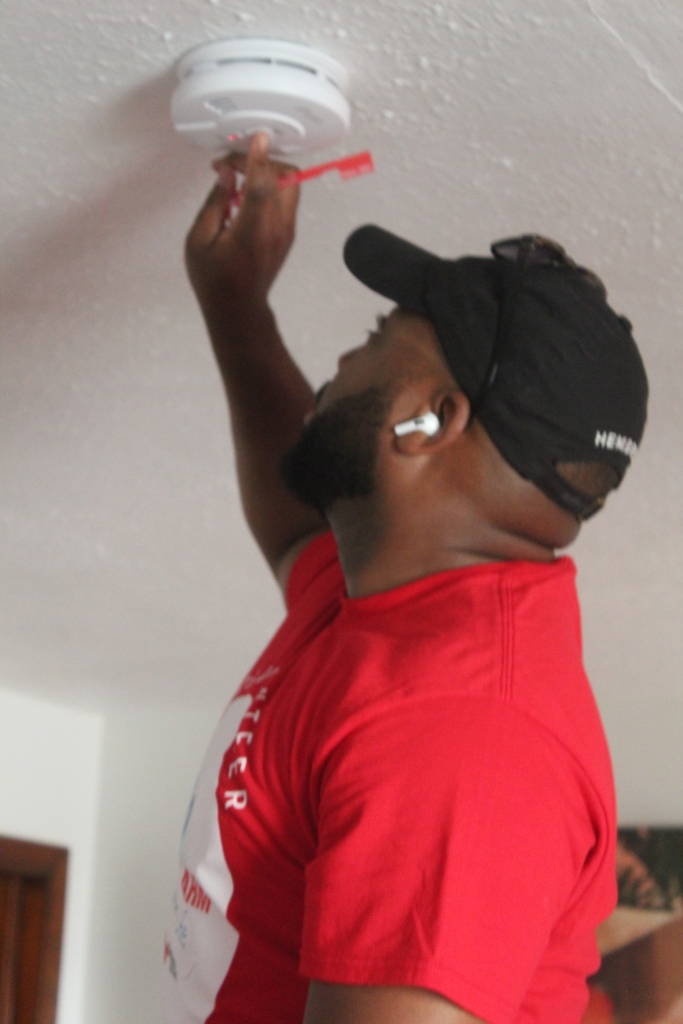By Ryan Lang, American Red Cross board member and volunteer
Volunteer work for the American Red Cross was never really something Mark Auburn considered. Now, 30 years into his service, he says the Red Cross has become a part of who he is.

“I don’t have a dramatic story, like many volunteers,” Mark said. “For me, it was swimming lessons when I was a kid – that’s where it started.” It was the personal connection that stood out to him. The time volunteers took with the members of his own community really made a
difference to Mark.
Then, when he found out that the majority of the entire organization was volunteers, Mark said he bought-in even more.
“Ninety percent of the people who work for the Red Cross are volunteers. That’s incredible!” And over the course of his 30 years with the Red Cross, Mark has seen those volunteers help people in his own community and around the world. To witness first-hand the reach of the Red Cross has been nothing short of remarkable for Mark.
“One of the huge changes in the Red Cross over my 30 years of volunteering is the sense of relationship between the Red Cross and the community. When I started, we were very locally focused.” Mark has since seen the reach of the Red Cross extend around the world.
Sharing his story with his fellow volunteers is a key part of the Red Cross experience for Mark. “I think it’s important that volunteers talk with other volunteers to learn their individual Red Cross stories.” That’s part of why Mark is looking forward to the upcoming Volunteer Recognition and Appreciation event in Akron.
Mark is not only a volunteer, he’s also a longtime member of the Greater Akron and the Mahoning Valley Chapter Board of Directors. And at 79-years-old, Mark is still going to meetings, face-to-face, to meet and work with fellow board members and other volunteers, all in the name of the Red Cross mission.
The biggest part of that mission is to “alleviate human suffering in the face of emergencies.” Recently, Mark experienced his own health emergency when he was hospitalized with COVID- 19. “I had complications that resulted in an internal bleed,” Mark said.
During his hospital stay Mark suffered a stroke. As a result, he needed six units of blood. “Because of the blood donated by strangers I am able to tell my Red Cross story today. Someone I will never know gave blood because they believe in the mission of the Red Cross, and it saved my life.”
Mark has seen the impact the Red Cross has made in his own life and around the world, and he encourages everyone to find out more about it for themselves. To do so, visit redcross.org.
Posted by Ryan Lang, American Red Cross board member and volunteer



















